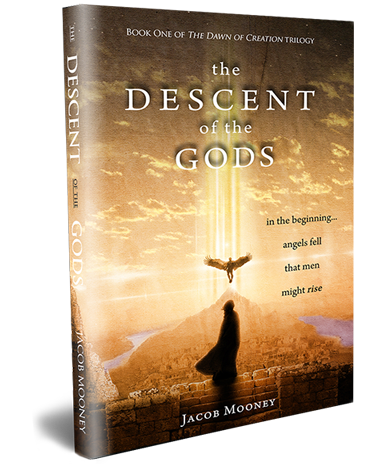In a 2022 episode of the GotQuestions podcast, the team explored the origins and significance of the Nephilim, providing insights from both biblical texts and historical interpretations.
This article will analyze the perspectives shared by the GotQuestions team, particularly focusing on the “sons of God” and the “daughters of men” and their connection to the Nephilim.
Who Were the Nephilim?
In Genesis 6:1-4, we encounter the Nephilim within the context of the antediluvian world:
“When man began to multiply on the face of the land and daughters were born to them, the sons of God saw that the daughters of man were attractive. And they took as their wives any they chose. Then the Lord said, ‘My Spirit shall not abide in man forever, for he is flesh: his days shall be 120 years.’ The Nephilim were on the earth in those days, and also afterward, when the sons of God came in to the daughters of man, and they bore children to them. These were the mighty men who were of old, the men of renown.”
Genesis 6:1-4
The Nephilim are often translated as “giants” and are described as mighty men of renown, born from the union of the “sons of God” and the “daughters of men.”
GotQuestions Podcast Insights
Fallen Angels Interpretation
The GotQuestions team discussed three primary interpretations of the identity of the “sons of God”:
- Fallen Angels: This traditional view suggests that the “sons of God” were fallen angels who took human wives, resulting in the Nephilim. Early church fathers like Justin Martyr, Clement of Alexandria, and Tertullian supported this view, as it aligns with the usage of “sons of God” in other biblical passages, such as Job, where it clearly refers to angels (Job 1:6, 2:1). As Kevin from GotQuestions notes, “the phrase ‘sons of God’ throughout scripture is used in reference to angelic beings… probably the clearest example of this would be in Job”. Modern commentators also largely favor this view including John MacArthur.
- Descendants of Seth Interpretation: Another interpretation posits that the “sons of God” were godly descendants of Seth who intermarried with the ungodly descendants of Cain, leading to the corruption of mankind. This view became more prominent during periods of anti-supernaturalism in biblical scholarship, however, it is also a position held by Biblical literalists like Ken Ham. Jeff from GotQuestions elaborates, “there are references in scripture where ‘sons of God’ are made in reference to human beings, such as believers or Israel”.
- Mighty Rulers or Kings Interpretation: A less common interpretation suggests that the “sons of God” were powerful human rulers or kings who practiced polygamy by taking many wives, which was against God’s design. This perspective is mentioned in various historical contexts and has been considered by some scholars as a plausible interpretation, including Michael Jones from Inspiring Philosophy.
Historical and Textual Context
The podcast also referenced the Book of Enoch, an ancient Jewish text that provides a detailed account of the Nephilim, describing them as giants born from the union of angels and human women.
While the Book of Enoch is not part of the biblical canon, it offers valuable historical context on how ancient Jews viewed these beings.
“The Book of Enoch expands on the Genesis account, giving a vivid portrayal of the sins of the angels and their offspring, the Nephilim,” notes Kevin.
Additionally, historian Flavius Josephus wrote about the Nephilim, describing them as giants and heroes of great renown. Josephus’ works (and that of other sources) provide extra-biblical confirmation of the widespread belief in the Nephilim during ancient times.
Nephilim Post-Flood
A significant discussion point in the podcast was whether the Nephilim survived the Great Flood. Numbers 13:33 mentions the Nephilim again when the Israelite spies report seeing giants in Canaan, specifically the descendants of Anak.
This suggests either a recurrence of the angelic-human unions or the survival of Nephilim lineage through other means. As the podcast explains, “the Bible possibly indicates that the Nephilim incident was repeated after the flood”.
However this interpretation is countered by writers such as Ken Ammi.
Theological Implications
The GotQuestions team emphasized the theological implications of the Nephilim narrative, particularly concerning angelology and the nature of angels.
They noted that the ability of angels to take human form and procreate challenges our understanding of spiritual beings. Both 2 Peter 2:4 and Jude 6 reference a group of angels who committed severe sins and were punished, possibly alluding to the Genesis 6 incident.
As Kevin notes, “both Peter and Jude refer to some group of angels that did something that required them to be bound and awaiting a future judgment”.
Concluding Thoughts
The GotQuestions team concludes that while the Nephilim narrative is intriguing, it is not a central doctrine. Understanding the Nephilim helps appreciate the broader narrative of God’s judgment and redemption. The team advises Christians to focus on more critical biblical teachings related to salvation, sanctification, and spreading the Gospel, rather than becoming overly obsessed with enigmatic topics like the Nephilim.
As Jeff states, “it’s fine to explore these topics, but our primary focus should be on the core teachings of the Bible and spreading the Gospel”.







